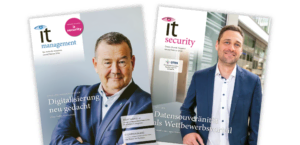A recent global study by Naoris Protocol shows: Most IT directors do not believe their companies are adequately prepared for the threats posed by quantum computing. At the same time, 83 percent consider decentralized systems to be more secure than traditional centralized cybersecurity solutions.
The transition to Web3 and the emerging quantum computing era are presenting companies with new challenges. According to a survey commissioned by Naoris Protocol of 100 IT directors from companies with an annual turnover of over 300 million US dollars, 58 percent consider a robust Web3 strategy to be extremely important.
Focus on decentralized security
The figures speak for themselves: 94% of respondents are convinced that decentralized networks will play a decisive role in defending against quantum computing threats over the next ten years. Decentralized Physical Infrastructure Networks (DePIN) in particular are moving center stage. Half of IT directors consider their integration to be essential in order to protect Web3 projects from vulnerabilities.
Increasing cyber attacks underline the need for action
The urgency is illustrated by current developments: according to the blockchain security company Certik, cyberattacks on the web3 increased by 31.6% in 2024 compared to the previous year. Losses due to cryptocrime already amount to over 2.3 billion US dollars.
“Web3 marks one of the most significant technological shifts in decades. IT directors need to be prepared for both the challenges and the opportunities,” explains David Carvalho, CEO and founder of Naoris Protocol. “Unlike Web2, Web3 is fundamentally decentralized and requires an entirely new approach to cybersecurity.”
Economic incentives drive adoption
In addition to improved cyber security, which is cited by 58% of IT directors as the main motivation, economic incentives also play an important role. 26 percent see this as a key factor. The ability to establish demonstrable and shared trust between devices, services and organizations is seen by 54 percent as a definite driver for enterprise adoption.
















